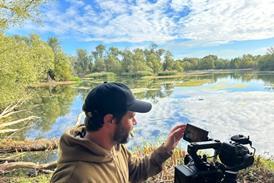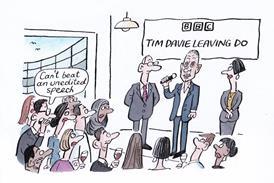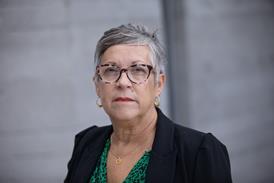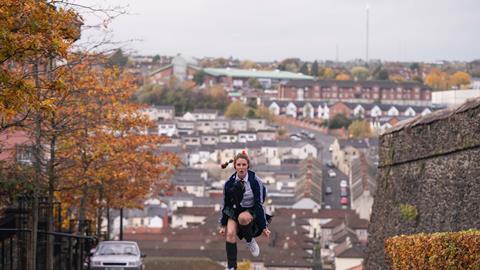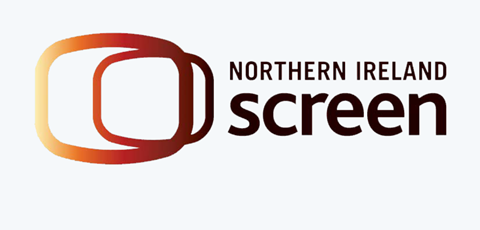 Sponsored content
Sponsored content
Northern Ireland Screen is aiming to capitalise on a booming local TV and film sector by doubling its investment in training for production crew
Stories, Skills and Sustainability: that’s the name of the four-year strategy unveiled by Northern Ireland Screen to capitalise on the recent growth in the country’s film, TV and games sector. From Derry Girls to Line Of Duty, Bloodlands and Mastermind, audiences across the UK and beyond are lapping up its shows.
Northern Ireland Screen has supported more than £1bn worth of productions since 2018 and has beaten its target of keeping more than £300m of this in the local economy by 10%. Now the race is on to increase that figure to £430m by 2026.
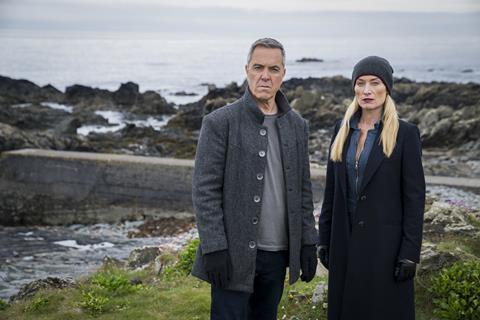
The skills part is key to this next phase of growth and Northern Ireland Screen has doubled its budget in this area to £4m a year. Ten years on from the launch of the Aim High programme, which has trained 59 people in factual entertainment, it now supports more than 130 trainees.
Aim High enters its second decade with a real standing in the industry. Maeve McLoughlin, a fitness instructor who wanted to switch careers, took part in its third iteration and worked at indies Below The Radar and Waddell Media prior to winning her first commission, for Stellify Media’s BBC dating format Beauty Queen & Single.
Now a senior digital development executive at Channel 4, she says she has “never had a day unemployed” since graduating from the scheme.
“It is greatly respected now because its participants muck in and learn quickly,” she says. “Employers know that the people selected for it are really dedicated and serious about progressing.”
This year, Northern Ireland Screen has added CINE, the Creative Industries New Entrant programme developed with BBC Northern Ireland, to its offer. It aims to create up to 100 training and job opportunities by 2025 for people from socially marginalised groups, particularly disabled people, ethnic minorities and those from the lowest socioeconomic groups.
SUPPORTING CAREER DEVELOPMENT
More than 570 people have registered their interest and the initiative is currently supporting 27 places – six at BBC NI and the rest at indies such as animation studio Paper Owl Films and VFX outfit Humain.
Northern Ireland Screen head of production Andrew Reid says the scheme will demonstrate the wealth of opportunities available to those who have not previously thought of employing their existing skillset in TV.
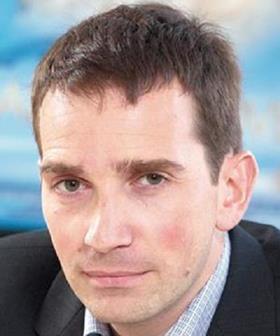
“The industry has a habit of wanting to build everybody from the ground up, but the reality is that there are an awful lot of skills out in the real world,” he says. “Come in and tell us what you already know and what you’ve already done – we can probably use it.”
Administrators and accountants make great production staff, he says, and location management is a good fit with people with experience of working outdoors. Specialist stylists, such as those skilled in Afro-Caribbean hair and make-up, are also in demand. BBC NI chief operating officer Mark Taylor says the broadcaster plans to increase its number of placements as the scheme continues.
“We’re only six months in, but I think this really will be a gamechanger in helping to speed the improvement in diversity statistics for the creative industries in Northern Ireland,” he says.
“We need to be open, and more inclusive and representative of the people that we’re trying to tell our stories to”
Andrew Reid, head of production, Northern Ireland Screen
Both Northern Ireland Screen and BBC NI acknowledge that in terms of ethnic diversity, Northern Ireland is different to other regions of the UK – around 3.5% of the population is BAME, for example – but the swelling production base needs to reflect that.
“We need to be open, and more inclusive and representative of the people that we’re trying to tell our stories to,” says Reid. “We’ll just become irrelevant if we don’t. So this is a call to all communities: you are welcome, there are opportunities, and we want to help you find your place within the industry.”
It’s now four years since Hat Trick and Hindsight Productions, with support from NI Screen, won a joint tender to produce of flagship BBC1 quiz Mastermind. Landing the first network quiz to be made out of Belfast – and one of the most famous and long-running shows on TV – was quite a coup.
By the end of this year, the two indies will have filmed more than 170 episodes at the studio in BBC Blackstaff House. Chris Jones, who executive produces the show and also runs Belfast indie Nice One Productions, says it has been “transformational” for the city.
“Studio entertainment was underserved for years in Northern Ireland,” he says. “We weren’t lacking for ideas, but there was a feeling the genre was a bit risky. But it has opened so many doors. If you have the best quiz producers training people, you’re going to shape the next generation.”
He credits Mastermind’s success with helping to get Lightning commissioned, and says serendipitous production schedules enabled him to employ some staff year-round across the two quizzes.
While Lightning has now ended, Jones sees opportunities in casting producers, production managers and quiz setters across several titles, ideally based in the city but also working remotely on English, Scottish and Welsh shows. One Mastermind casting researcher, for example, worked on ITV’s Tenable, filmed in Pinewood TV Studios, without leaving Belfast.
“It comes back to the old adage, ‘It’s nothing that a hit won’t sort out’,” Jones says. “Whatever the genre, a hit is a calling card that breeds confidence and trust and we have to keep creatively renewing ideas.
“This is the first time I can recall that there’s a community and a buzz around studio entertainment here. We feel like we are credible in the genre and can be competitive – Derry Girls has been a bona fide NI hit, and there’s no reason why we can’t have a breakout quiz too.”




















